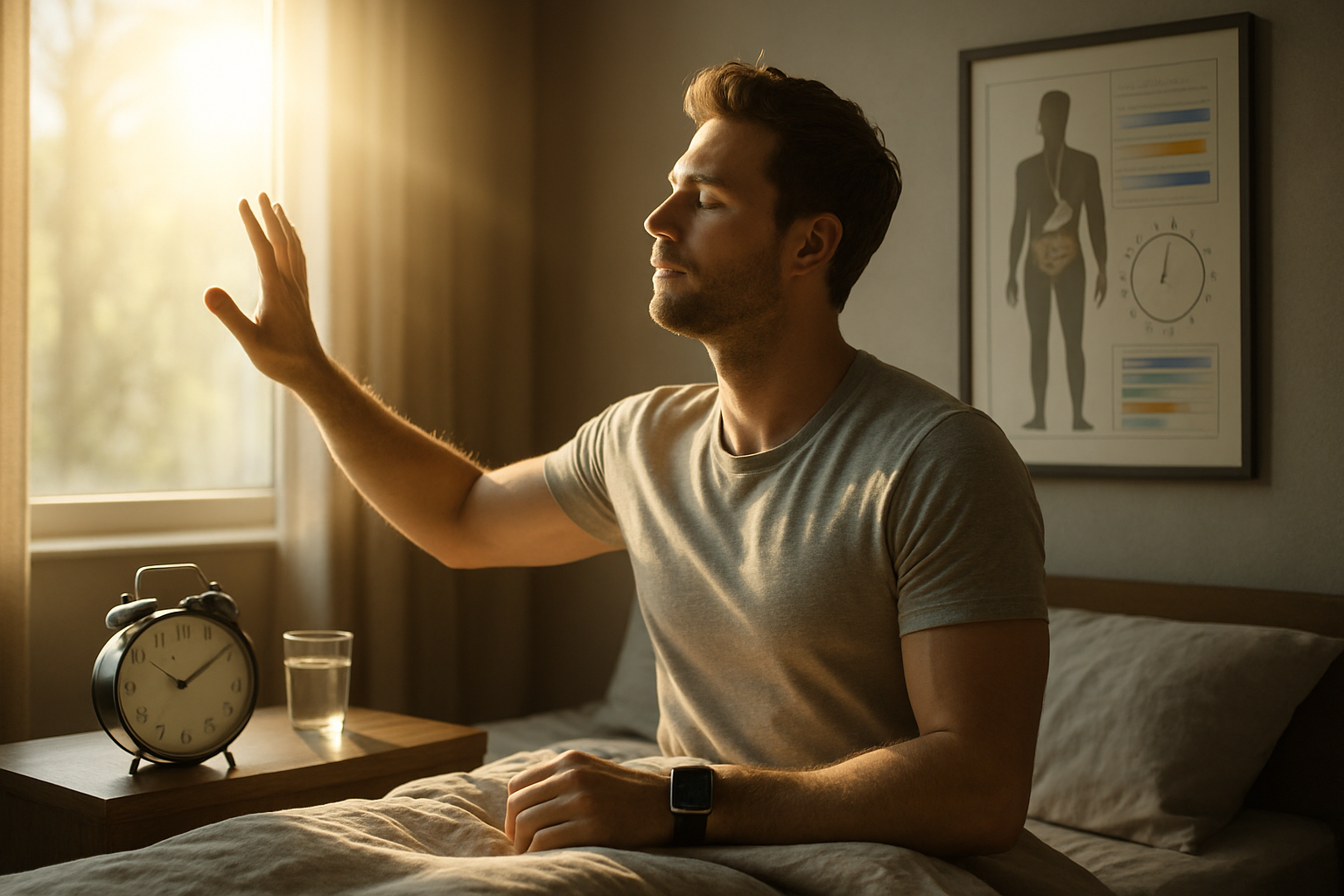Biohacking Your Circadian Rhythm: The Future of Sleep Optimization
Sleep is no longer just about getting eight hours a night. Welcome to the world of circadian rhythm biohacking, where cutting-edge science meets ancient wisdom to revolutionize our approach to rest. But what exactly is this emerging trend, and how can it transform your health and performance? Let's dive into the fascinating realm of chronobiology and discover how aligning with your body's natural rhythms could be the key to unlocking your full potential.

Historically, humans lived in harmony with these natural cycles, rising with the sun and resting at nightfall. However, modern life has disrupted this delicate balance. Artificial lighting, late-night screen time, and irregular schedules have thrown our internal clocks into disarray, leading to a host of health issues.
The Science of Circadian Biohacking
Circadian biohacking aims to realign our lifestyles with our natural rhythms. This approach combines insights from chronobiology, nutrition, and environmental science to optimize our daily routines for peak performance and health.
Recent research has uncovered the profound impact of circadian rhythms on our well-being. A groundbreaking study published in the Journal of Clinical Endocrinology & Metabolism found that disrupting circadian rhythms can lead to increased risk of obesity, diabetes, and cardiovascular disease. By contrast, aligning with these rhythms can enhance cognitive function, boost immunity, and even slow the aging process.
Practical Strategies for Circadian Optimization
Implementing circadian biohacking doesn’t require complex gadgets or extreme lifestyle changes. Here are some evidence-based strategies to get started:
-
Light Exposure Management: Exposure to bright light in the morning helps reset your circadian clock. Aim for at least 30 minutes of natural sunlight within an hour of waking. In the evening, reduce exposure to blue light from screens by using apps or glasses that filter out these wavelengths.
-
Time-Restricted Eating: Aligning your meal times with your circadian rhythm can improve metabolic health. Try limiting your eating window to 8-12 hours during daylight, allowing your digestive system to rest overnight.
-
Temperature Regulation: Your body temperature naturally drops at night to promote sleep. Create an environment that supports this by keeping your bedroom cool (around 65°F or 18°C) and consider taking a warm bath before bed to induce a temperature drop.
-
Exercise Timing: Physical activity can act as a powerful circadian cue. Morning exercise can help reset your clock and boost alertness, while gentle evening exercise may improve sleep quality.
-
Caffeine and Alcohol Management: Both substances can disrupt your circadian rhythm. Limit caffeine intake to the morning hours and avoid alcohol close to bedtime for optimal sleep quality.
Personalized Chronotypes and Flexibility
While general principles of circadian biology apply to everyone, it’s crucial to recognize individual variations. Chronotypes, or personal circadian preferences, can influence when we naturally feel most alert and productive. Understanding your chronotype can help you tailor your biohacking approach for maximum benefit.
The concept of chronotypes extends beyond the traditional “early bird” and “night owl” categories. Recent research has identified at least four distinct chronotypes, each with unique circadian patterns. By aligning your daily activities with your chronotype, you can optimize your performance and well-being.
The Future of Circadian Medicine
The field of circadian biology is rapidly evolving, with exciting implications for personalized medicine. Chronotherapy, the practice of timing medical treatments to align with circadian rhythms, shows promise in improving the efficacy of various interventions, from cancer treatments to cardiovascular medications.
Wearable technology is also advancing our understanding of individual circadian patterns. Smart devices can now track not just sleep duration but also light exposure, activity levels, and even hormonal fluctuations, providing a comprehensive picture of our circadian health.
Challenges and Considerations
While the potential benefits of circadian biohacking are significant, it’s important to approach this practice with mindfulness and flexibility. Strict adherence to circadian principles may not always be practical in our 24/7 society. The key is to find a balance that works for your lifestyle while respecting your body’s natural rhythms.
It’s also crucial to consult with healthcare professionals before making significant changes to your sleep or eating patterns, especially if you have existing health conditions.
Circadian Wisdom: Quick Tips for Rhythm Restoration
-
Establish a consistent sleep-wake schedule, even on weekends
-
Create a relaxing bedtime routine to signal your body it’s time to wind down
-
Avoid large meals and intense exercise close to bedtime
-
Use blackout curtains or an eye mask to create a dark sleep environment
-
Consider using a dawn simulator alarm clock for a more natural wake-up
-
Stay hydrated throughout the day, but reduce fluid intake before bed
-
Engage in relaxation techniques like meditation or deep breathing to manage stress and support healthy circadian function
As we continue to unravel the mysteries of our internal clocks, circadian biohacking offers a promising path to enhanced health, productivity, and well-being. By aligning our lives with the natural rhythms that have guided human biology for millennia, we can tap into an innate source of vitality and balance. The future of sleep is not just about quantity, but about quality and timing. Embrace the wisdom of your circadian rhythm, and you may find yourself on the cutting edge of health optimization.






